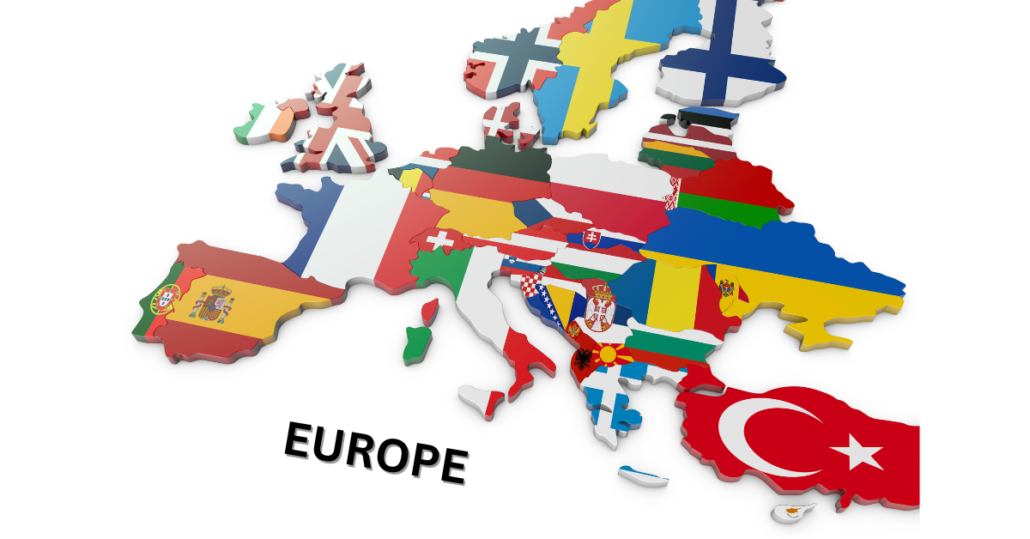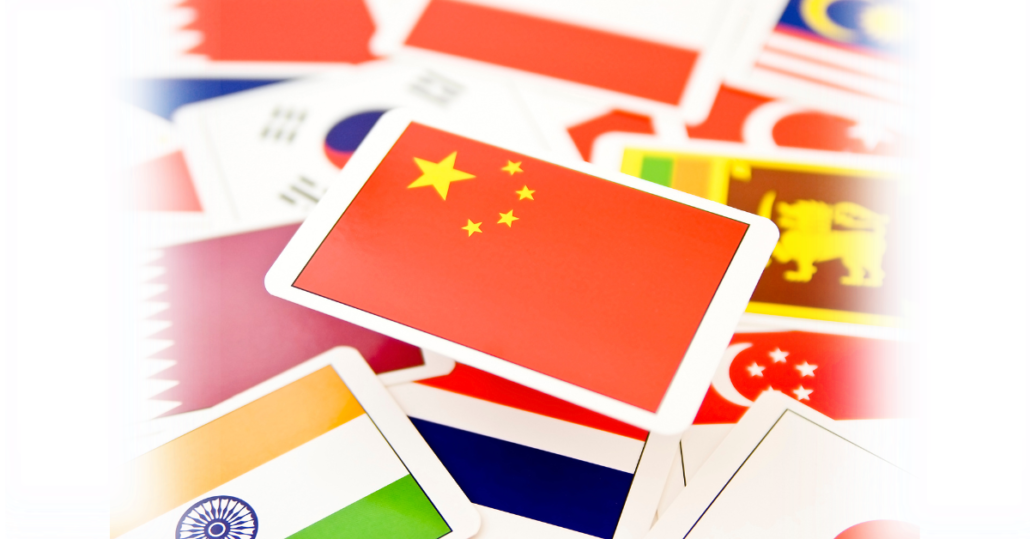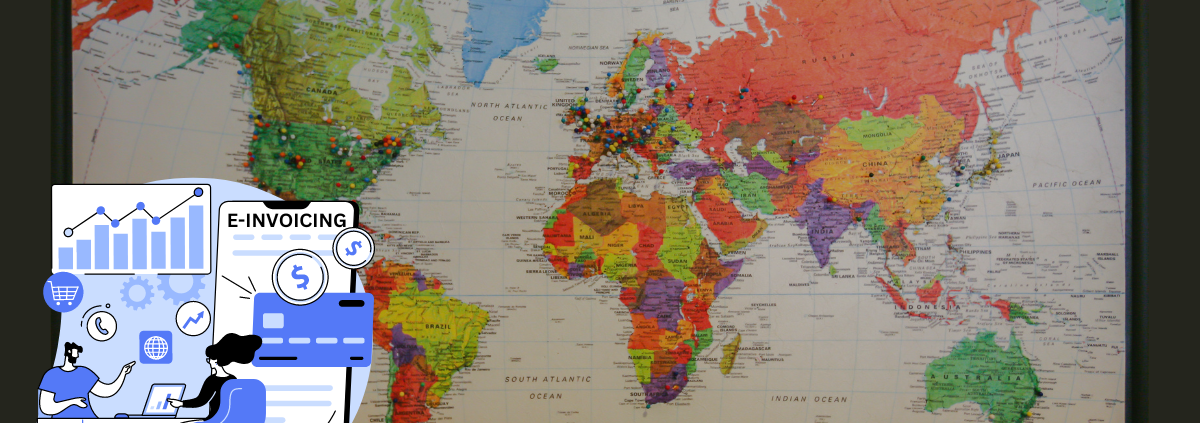Electronic Invoicing in Other Countries
Electronic invoicing is transforming financial systems worldwide, including Malaysia. From Europe to Asia, let us look on the overview of electronic invoicing practices across the continents.
Table of Contents
Europe

The first continent to introduce electronic invoicing, thanks to both Directive 2014/55/EU and the VAT in the Digital Age (ViDA). Both of these efforts play an important role on the electronic invoicing transformation in Europe.
Directive 2014/55/EU
Introduced on 16 April 2019, this directive states that all European public administrations must be able to accept invoices in electronic format from their suppliers.
VAT in the Digital Age (ViDA)
An initiative introduced by the European Union (EU) to ensure fair and effective collection of Value-Added Tax (VAT) for businesses selling goods or services online to customers in the EU.
One of the earliest countries that implemented mandatory electronic invoicing are Italy, Hungary, and Albania. The table below lists out the status of electronic invoicing of every country in Europe (as of 16 February 2024):
| Countries with Mandatory B2B Electronic Invoicing | Italy, Hungary, Albania, Serbia, Romania, Poland, North Macedonia, Belgium, France, Spain, Latvia, Croatia, Slovakia, Slovenia, Montenegro, Germany |
| Countries with Pending B2B Electronic Invoicing | Andorra, Austria, Bosnia and Herzegovina, Bulgaria, Cyprus, the Czech Republic, Denmark, Estonia, Finland, Greece, Ireland, Liechtenstein, Lithuania, Luxemburg, Malta, Monaco, the Netherlands, Norway, Portugal, Sweden, Switzerland and the United Kingdom |
Asia

Across Asia, Singapore became the first Peppol Authority outside of Europe, which uses InvoiceNow service provided by the Singaporean government.
In Japan, the Japanese Digital Agency achieved Peppol Authority status in 2021. They became the fourth entity outside of Europe to do so, following Australia, New Zealand, and Singapore. This government institution is tasked with digitizing administrative processes promoting the standardization of data systems, including electronic invoicing.
In China, ‘’e-Fapiao’’, which is the same as electronic invoicing, was introduced in 2015. The pilot programme started on December 2021, aiming to phase out paper-based invoices completely.
Other Asian countries that have significantly implemented electronic invoicing are India, South Korea and Vietnam.
North America

In the USA, the momentum of electronic invoicing has gained in recent years. The government has introduced Federal Financial Management Improvement Act (FFMIA) in 1996, which requires federal agencies to use financial management systems that follow specific standards, including electronic invoicing.
In 2022, a pilot project was conducted in the USA with the objective of creating and evaluating a virtual network that will facilitate the exchange of electronic invoicing among companies of diverse backgrounds. The project sought to establish a secure and open framework for delivering electronic invoicing between service providers. Its goal was to lay the groundwork for a functional system for exchanging business-to-business (B2B) invoices tailored to the American market by 2023.
Other North American countries that have adopted electronic invoicing are Canada, Mexico, Guatemala and Costa Rica.
Africa

In order to achieve African Union’s Agenda 2063, countries in Africa need to adopt efficient, transparent, and streamlined tax and revenue collection and public expenditure systems, improving domestic savings and eliminating all forms of illicit flows. This resulted in the vast electronic invoicing implementation across the continent.
Despite the absence of a standardized electronic invoicing model or continental network akin to PEPPOL in Europe for facilitating exchanges between companies and governments, Africa does exhibit a prevalent implementation model known as the Virtual Fiscal Device system.
Below is the list of the countries that has adopted mandatory and voluntarily electronic invoicing:
| Mandatory B2B Electronic Invoicing | Egypt, Chad, Niger, Nigeria, Ghana, Ivory Coast, Sierra Leone, DR Congo, Uganda, Kenya, Rwanda, Burundi, Tanzania, Angola, Zambia, Zimbabwe, Mozambique, Benin |
| Voluntarily B2B Electronic Invoicing | Senegal, Ethiopia, Togo, Namibia, South Africa, Lesotho, Swaziland |
South America

Brazil, Chile and Ecuador have led the way in implementing the electronic invoicing system. However, other countries such as Uruguay, Peru and Paraguay are not too far behind.
In Brazil, the use of Nota Fiscal de Serviços Eletrônica (NFS-e) is required for services provided by small taxpayers who are not incorporated into the NFS-e system. Meanwhile, several districts in the country such as Sao Paolo and Minas Gerais adopted electronic electricity bill.
Oceania

Australia is one of the first countries to adopt electronic invoicing outside of Europe. The Australian Department of Treasury remains committed to advance the adoption of electronic invoicing, utilizing the BIS Billing 3.0 format, which is aligned with the PEPPOL standard. Starting from 2022, B2G transactions will be mandated to use this format.
In New Zealand, all central government agencies must be prepared to receive electronic invoices by 31 March 2022. It is expected that electronic invoices will constitute 90% of all invoices submitted to the government by July 2026. However, no additional details or specific implementation dates have been disclosed at this time.
Other countries such Fiji has adopted a phased approach to enforce the utilization of electronic fiscal devices (EFDs) across different sectors and for taxpayers.
Conclusion
In conclusion, electronic invoicing stands as a pivotal force driving modernization and transparency worldwide. From Europe to Asia and beyond, its adoption reflects a global shift towards digitalization in finance. As countries navigate challenges and embrace opportunities, the trend towards efficiency and accountability reaffirms the enduring importance of electronic invoicing in shaping global commerce.



